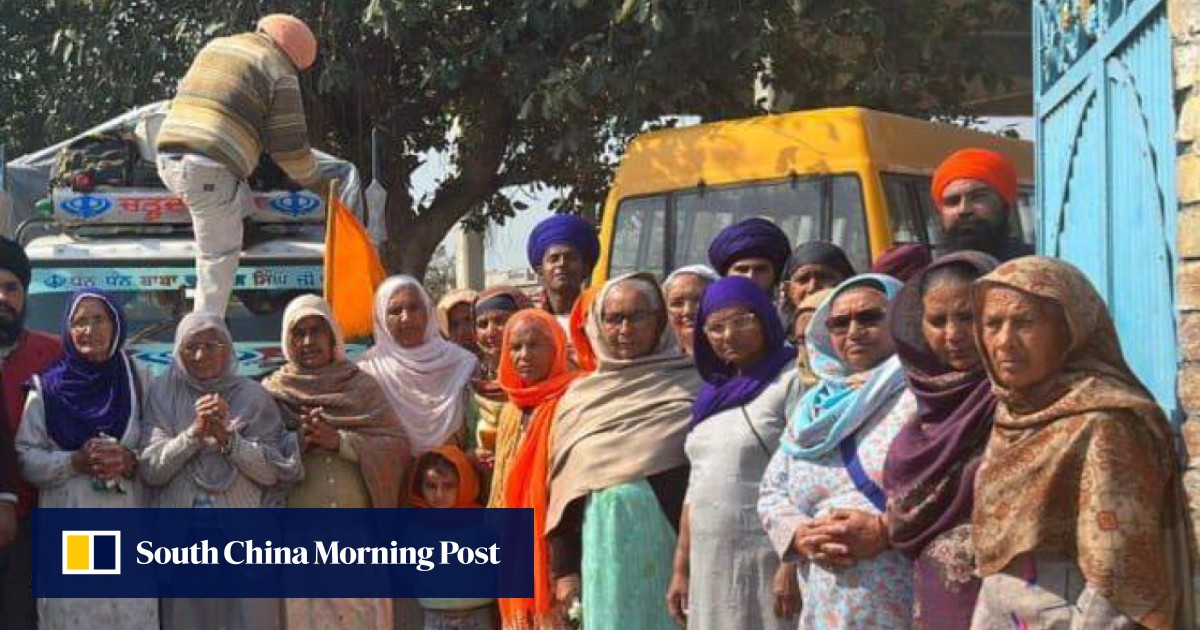At Shambhu, near the border with the state of Haryana, protesting farmers from the “Delhi Chalo” (Let’s Go to Delhi) movement were prevented by government forces from advancing towards the capital.
Thousands of women farmers from various parts of Punjab and Haryana converged at the protest site on Friday, protesting against what they see as the government’s inflexible response to the demands of the farmers.
India’s protesting farmers close in on New Delhi with new travel strategy
India’s protesting farmers close in on New Delhi with new travel strategy
The protesters want the ruling Bharatiya Janata Party (BJP) government to fulfil promises made in 2021 on minimum support prices (MSP) for crops and a waiver on farmers’ debts before they call off their protest, which began on February 13.
All three main entry points to Delhi have been blocked by the Indian government.
On February 21, the protesters’ attempt to breach the barricades triggered a strong response from the police, including the use of tear gas, pellets and drones to disperse them. The clash resulted in the death of 21-year-old farmer Shubhkaran Singh near the town of Khanauri in Punjab, while two other protesters were blinded.
Despite three rounds of talks between farmer leaders and Delhi officials, no agreement has been reached on the government’s proposed offers.
‘Fascist’: India’s police threaten to cancel protesting farmers’ passports
‘Fascist’: India’s police threaten to cancel protesting farmers’ passports
During the most recent round of negotiations on February 18, a government panel suggested the purchase of five crops – moong dal, urad dal, tur dal, maize and cotton – at MSP over five years through central agencies. The farmers rejected the proposal and resumed their protest.
“We wanted to convey to the world and Prime Minister [Narendra] Modi that if you speak extensively about women empowerment, our farms embody our empowerment. It is our means of livelihood. So why is he not empowering us by granting us our rights?” said Inder Kaur, a woman farmer from Punjab.
The 33-year-old single mother of three said her children are disheartened to see her endure arduous work for minimal returns.
“They urge me to seek alternative employment even if it pays less as it would be less detrimental to my health compared with farming. But I cannot abandon farming. If the government assists us in achieving better incomes, we will be grateful and lead happier lives,” she said.
Vani Subramanian, a women’s rights activist and documentary filmmaker, told This Week in Asia that most farming activities in India are carried out by women.
She said that the women joining the protest movement have been forced to do so because of unfair government policies.
“The government’s failure to fulfil promises pushed women to come onto the roads. The demand for justice isn’t solely because it’s Women’s Day but because of their legitimate and unmet demands,” she said.
Farmer leader and social activist Darshan Pal said the government’s inertia over the movement’s demands would only exacerbate the problems faced by the protesting farmers. He slammed the government for siding with “capitalist” groups.
“This reflects poorly on the BJP’s handling of the farmers’ grievances as they profess farmers to be their backbone on stage while subjecting them to suffering. Such injustice could escalate into a volatile situation,” Pal said.
Woman farmer Sarbjeet Kaur said the protest will continue well beyond International Women’s Day if the movement’s demands remain ignored by the government.
“Our support for the protest will persist through cooking food, handling chores, and even tending to fields, ensuring that the struggle does not wane until we receive the justice we deserve.”


